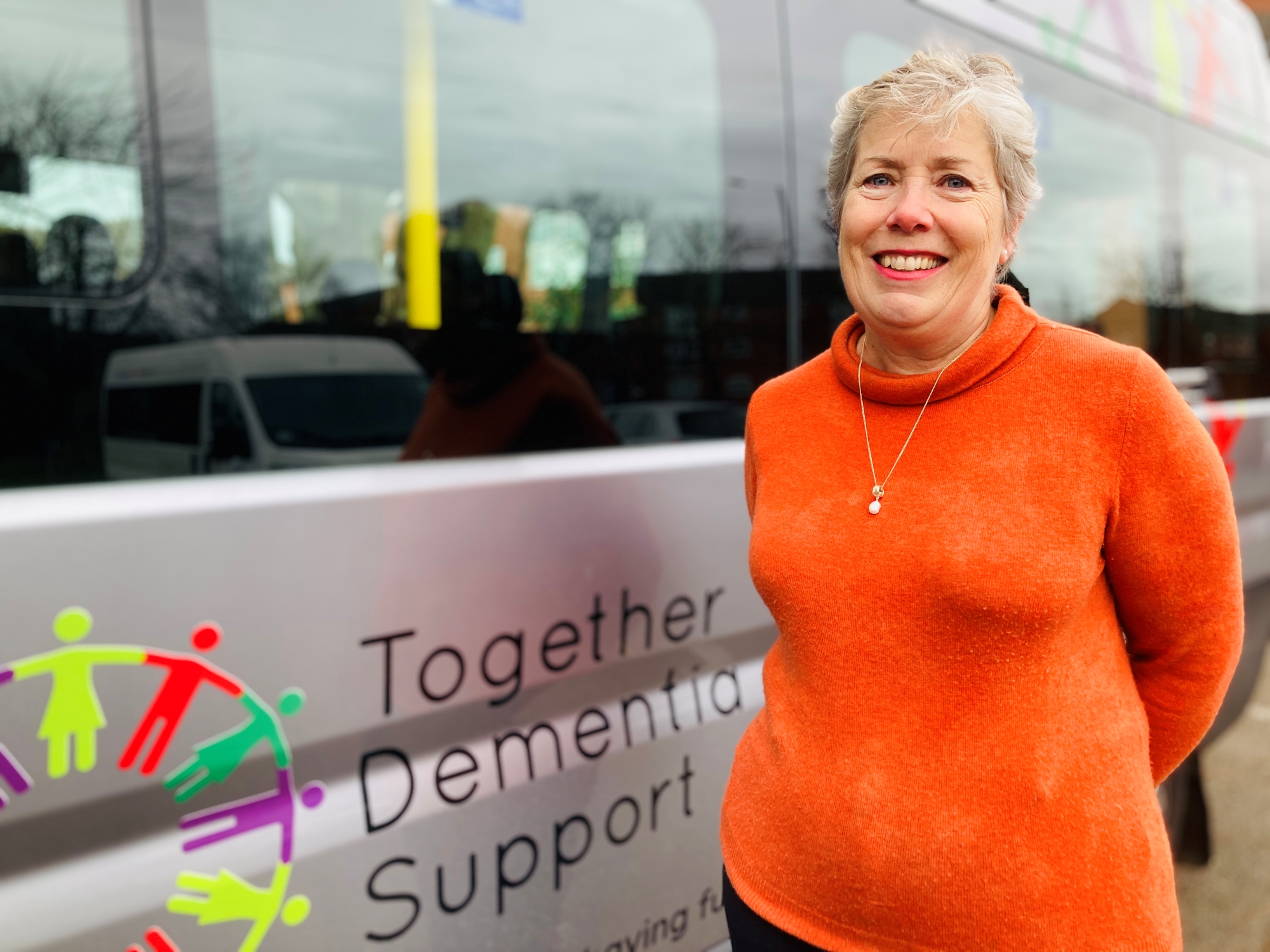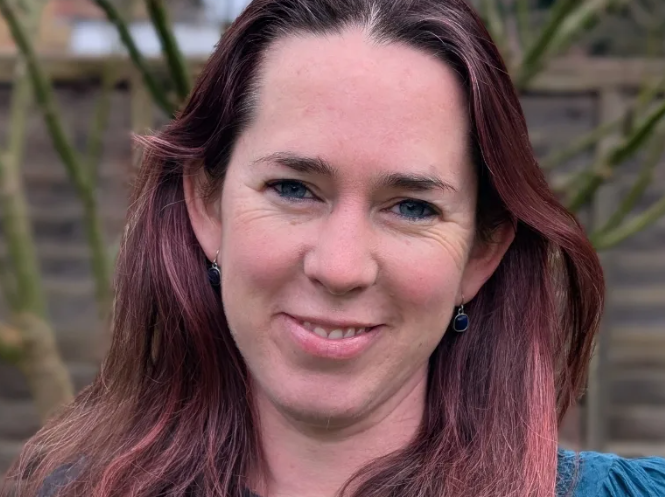The CEO of St Mungo’s sat down with Charity Times to discuss moving into the sector, funding and strikes.
______________________________________________________________________
Emma Haddad isn’t a charity sector veteran. When she moved from the civil service in the central government two years ago to become CEO of St Mungo’s, it was her first charity role.
“I’d often thought about the charity sector [...] I think in terms of where my values lie the charity sector was the obvious place to look. And this one came up and resonated. I’m absolutely privileged to find myself in the role,” she explains.
And despite the challenges the charity has faced (and still is facing), she is enjoying her role and the opportunity the organisation has to end homelessness. “St Mungo’s is one player in an ecosystem of many who need to support the people we interact with. But we’re playing a part and that’s incredible.”
Strike action
When she arrived in the post in November 2022, in the midst of an emerging cost of living crisis, there was a live pay dispute Haddad admits “was challenging to navigate”.
It culminated in much-publicised strike action, which lasted three months and ended in August 2023 after staff secured a pay increase.
The deal meant that a median 10.74% pay increase was agreed, with most workers also receiving a one-off payment of £700. The deal also meant the lower paid workers would get a larger share of the pot and executive directors at the charity agreed to a pay freeze for 2023/24.
“It was hard,” Haddad acknowledges. “It was hard for the teams, it was hard for the colleagues who stayed in work, it was hard for the colleagues who decided to go on strikes and it was really hard for the clients who were not seeing the people who they normally see support them.”
She understands the reasons why it got to the point of the strike, but states “in terms of bringing people together, it does the opposite.”
Being new to the organisation, and inheriting the situation – and then having to lead the organisation in navigating its way out – was challenging for her. “Luckily we managed to resolve it, we’re all back at work, relationships are good and we’re now focused on doing the stuff that we’re good at.”
Since the strike, Haddad says that there are regular conversations going on between St Mungo’s and the unions and there have been extra channels put in place to do that. “There’s definitely a role unions play, but hopefully it’s a constructive relationship going forward.”
Increasing demand
Haddad explains that as a homelessness charity, it’s been a difficult time. “Homelessness is getting worse, not better,” she states.
“If you’re working in a homelessness organisation, you hope you’re making a difference in terms or making it better and we are in terms of the individual people we support, but on a wider scale there’s more people finding themselves homeless, not fewer. That can be demoralising for the teams; we’ve only got finite resources.” As a result, there is big role for the organisation’s policy and influencing work. “We try and push on the things that make a difference.”
That’s difficult to do without funding, which Haddad notes may have been linked to the strike and why it made finding a settlement difficult. “We’ve got a habit now of making a deficit each year for the last couple of years, which you can’t keep on doing because eventually the money runs out.”
In 2022, the organisation had a deficit of £100,000, but in 2023 that had risen to £3.25 million.
“It’s really hard, the margin you’ve got to do things is really tight” Haddad adds, explaining that it’s a stark difference to her last role.
“I’m somebody who wants to try stuff, do some things and get bigger and grow and I’ve got to pace myself because there isn’t necessarily the means to do it.
“We’re having to take some tough decisions,” she confesses. A lot of the work St Mungo’s does is commissioned by local government and “they’re absolutely on their knees.” It’s hoped that the new government will help in some way, but “there’s a lot of unknowns” for both St Mungo’s and the rest of the sector in what, or if, Labour will do to help.
Feeling hopeful
When asked about the future of St Mungo’s, Haddad says she feels hopeful. “I think you have to be hopeful in this sector [...] if you look at what’s going on out there you could get pretty despondent about hoping and lose hope. But if you look at the individual stories, the stories are inspirational and there is hope there.”
On a national level, she is also optimistic. “We have a new government. We watched homelessness get worse and worse under the previous government for all sorts of reasons but I hope that the new government will start to make a difference with our support.”
She emphasises that it’s not just down to the government to make change: “It’s on us too.” It can be easy to hand the reigns over and say it’s all down to the government, she explains, but it’s down to charities too; to look at the way partnerships are used, how money is being used and if any changes are needed. “It’s on us to partner, to suggest and to help.”
The desire for partnership is something Haddad repeats. “I’m somebody who loves to collaborate. I think if we partner and collaborate, we’ve got a stronger voice… we can have more of an impact, we can do more interesting things; especially if everyone’s dealing with small financial margins.”
A lot of the organisations who talk about collaboration say they want to do it, but it becomes hard to put into practice when brand recognition and fundraising comes into play. “Maybe we should be really altruistic and focused on the impact we’re trying to have and the purpose, the vision we’re trying to achieve.
“If our collective endeavour is to end homelessness, that ought to be more important than your brand recognition,” she states, explaining that she doesn’t want to offend anyone but “it’s a conflict to overcome.”
With 2024 coming to a close and charities facing an uncertain financial future, the idea of collaboration is certainly going to be at the forefront of many leaders mind’s going forward.
Latest News
-
Community charity to close after being ‘unable to find sustainable financial support’
-
Study calls for better governance arrangements among charities
-
Charities ‘rarely involve affected communities’ in AI decisions
-
Friday funding roundup - 14 November
-
Charity and social housing regulators to work more closely
-
Government launches Office for the Impact Economy
Charity Times video Q&A: In conversation with Hilda Hayo, CEO of Dementia UK
Charity Times editor, Lauren Weymouth, is joined by Dementia UK CEO, Hilda Hayo to discuss why the charity receives such high workplace satisfaction results, what a positive working culture looks like and the importance of lived experience among staff. The pair talk about challenges facing the charity, the impact felt by the pandemic and how it's striving to overcome obstacles and continue to be a highly impactful organisation for anybody affected by dementia.
Charity Times Awards 2023
Mitigating risk and reducing claims

The cost-of-living crisis is impacting charities in a number of ways, including the risks they take. Endsleigh Insurance’s* senior risk management consultant Scott Crichton joins Charity Times to discuss the ramifications of prioritising certain types of risk over others, the financial implications risk can have if not managed properly, and tips for charities to help manage those risks.
* Coming soon… Howden, the new name for Endsleigh.
* Coming soon… Howden, the new name for Endsleigh.
Better Society

© 2021 Perspective Publishing Privacy & Cookies












Recent Stories